Rocky & The Sweden have been an enduring part of my punk rock listening since I heard their THC LP: a blazing mix of classic Japanese hardcore and Motörcharged rock ‘n’ roll that seemed perennially shrouded in pot smoke.
By the time Partners In Crime reissued it in the middle 2000s, the band had been dormant for some years and it would have been safe to assume the band had, like so many others, died quietly in the night.
2019, though, saw the unexpected release of a ripping two-track single on the ever-excellent Break The Records, which was followed by the fantastic ‘City Baby Attacked By Buds’ LP and, in 2022, a split LP with Boris.
Having lost none of their fire or urgency in the intervening years I thought it would be interesting to get some info about the band, their history and where they’re headed now that their flame has been reignited.
Questions kindly answered via email by Rocky (vocals), Takeshi Sweden (bass) and Masaaki ‘Captain’ Sweden (drums), and translated by Takeshi. All photos lifted from the band’s website.
Okay! Let’s start with the simple stuff: how, when and why did Rocky & The Sweden get together? What was the original plan?
ROCKY: Takeshi Sweden asked everyone to join him, and the band was born.
TAKESHI SWEDEN: My old band had broken up and I had been away from music for a few years, but I still had a strong desire to play in a band again. I happened to be at a gathering of friends at the beach, where I met Rocky for the first time. I didn’t know about his previous band, but I felt his aura and invited him to join the band. As for Masaaki Sweden, I was persistent in hitting him up.
MASAAKI ‘CAPTAIN’ SWEDEN: The first time was in 1995 or 1996 when Takeshi Sweden approached me about starting a new band. We started rehearsing and I met Rocky for the first time. At first, Takeshi Ohtani (Boris) played guitar, Sen (Piledriver) was brought in, and it took some time before the band actually got together and started playing. During the discussion, we decided on the concept of “a straight, rockin’ hardcore sound with marijuana-themed lyrics.”
The band seems to have spent a lot of time ‘frozen’. What happened during these periods? Were you practising and playing shows during this time? Did you break up, or was there always the intention to start making music again?
TAKESHI SWEDEN: The reason for the band’s shutdown was a combination of my personal problems and the band’s situation at the time, which was extremely bad, and a combination of adverse conditions forced us to stop. However, I was not aware that we had broken up. I knew we would be able to resume at the right time.
MASAAKI ‘CAPTAIN’ SWEDEN: The band went on hiatus in 2005. The reason was that T.Sweden was having some personal problems at the time and could no longer concentrate on the band.
ROCKY: During the freeze, you just rested and didn’t think about it. When you want to do it again, you do it. I thought it was time to do it again!
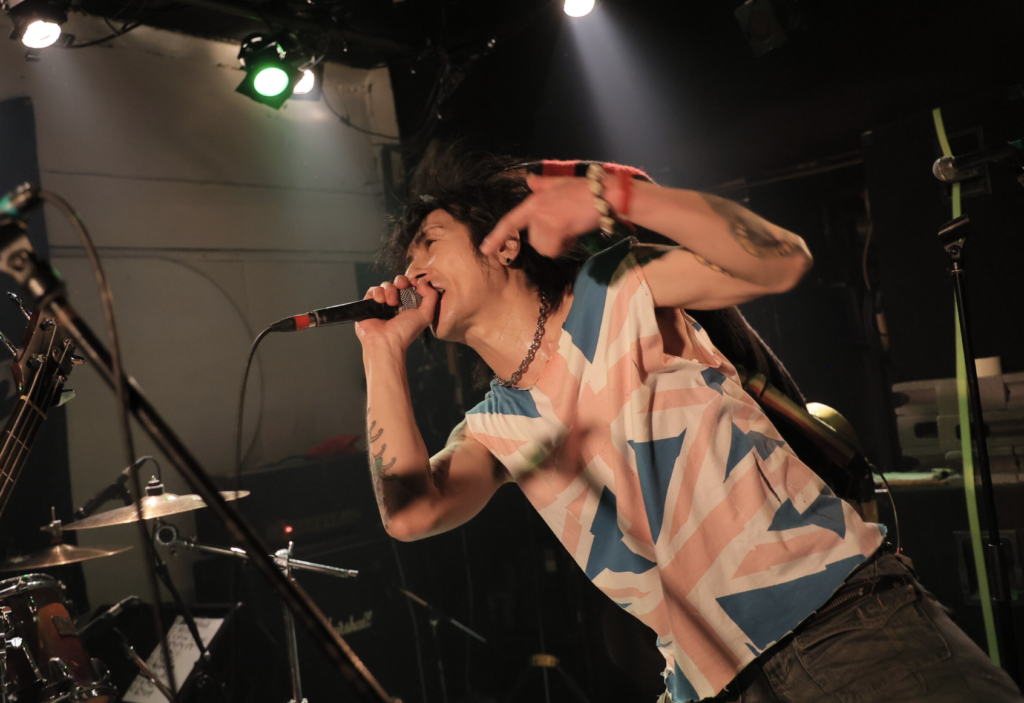
While the ‘core’ of the band remains Rocky, Takeshi and Masaaki, I know you’ve had some line-up changes. What did this mean for the band, and how has it changed the sound?
MASAAKI ‘CAPTAIN’ SWEDEN: The first one is Kengo Sweden, and his greatest achievement is that he was very influential in establishing the concept of the band. He’s still playing music today, but he’s never wavered in his themes since his time in R&S!
The second one is Sukekiyo Sweden, I guess a lot of people got to know R&S when he was playing. He was popular because of his good guitar and good looks. He was always playing tight against T.Sweden’s bass lines, which saved my life!
He was active in Extinct Government during the R&S hiatus and was a part of the 2013 resurrection and 2016 relaunch, but unfortunately he went his separate way. We are not active in music anymore, but we are good friends when we see each other.
The third one is Kazuki Sweden, who was recruited by T.Sweden and we started looking for a new guitarist when Vivi Sick broke up. We had been writing songs since we started up again, so we had a lot of new songs. Kazuki Sweden came up with the idea of layering guitars on top of each other, and we decided to go with it. The biggest help in creating the sound was the advice of Noise Room Recording Studio, a treasure in the Japanese HC world, and its owner, mixer Shige. Unfortunately, however, Kazuki and Kazuki Sweden have gone their separate ways.
I had sessions with 5-6 guitarists in order to find new Swedish bros. There were many different types of guitarists, but the one that everyone liked was the guitarist I brought with me from Yokohama. He was the leader of a rustic band called Emmanuelle Sunflower, but he also had a band called Liquid with a jazz/fusion sound. He was a great guitarist, but he also had a background of copying R&S songs when he was a student.
The fourth guitarist, Hiroshi “iga” Sweden, was brought in after being overwhelmed by his skills.
Before Kazuki Sweden’s last gig, we had several rehearsals with the five of us, where Iga Sweden showed his ability without any hesitation, and the three of us realized the potential of twin guitars for the first time.
We started looking for another guitarist right after Kazuki left Sweden. Soon after, a young guitarist in his 20s, who was well known in the reggae community in my hometown Yokohama and also played in a mixed music band called Irie Boys, came forward to play. I had known him since he was a teenager, but he had never played Punk music.
Then the fifth member, Shihon “Park” Sweden joined the band and we became the strongest lineup in the band today.
The sound is just like the split with Boris. Thanks to these two talented musicians, the band has been able to broaden its sound and musicality. But the base of the sound is still me and T.Sweden’s rhythm, which is the key beat of Hardcore. And Rocky’s shouts! Except for one song on each of the first two 7inches, everything else has been written by me, Rocky, and T.Sweden, so the basic style of the music has remained the same.
However, since the resurrection, Rocky’s writing pace has not slowed down, and recently, many of the songs are Rocky’s.
ROCKY: I realized that the R&S sound is more about the core of the three of them I realized that the core of the R&S sound is the three of them, not the meaning or the change.
TAKESHI SWEDEN: We are confident that anything we play with these three will be our sound. We just have to take on the challenge.
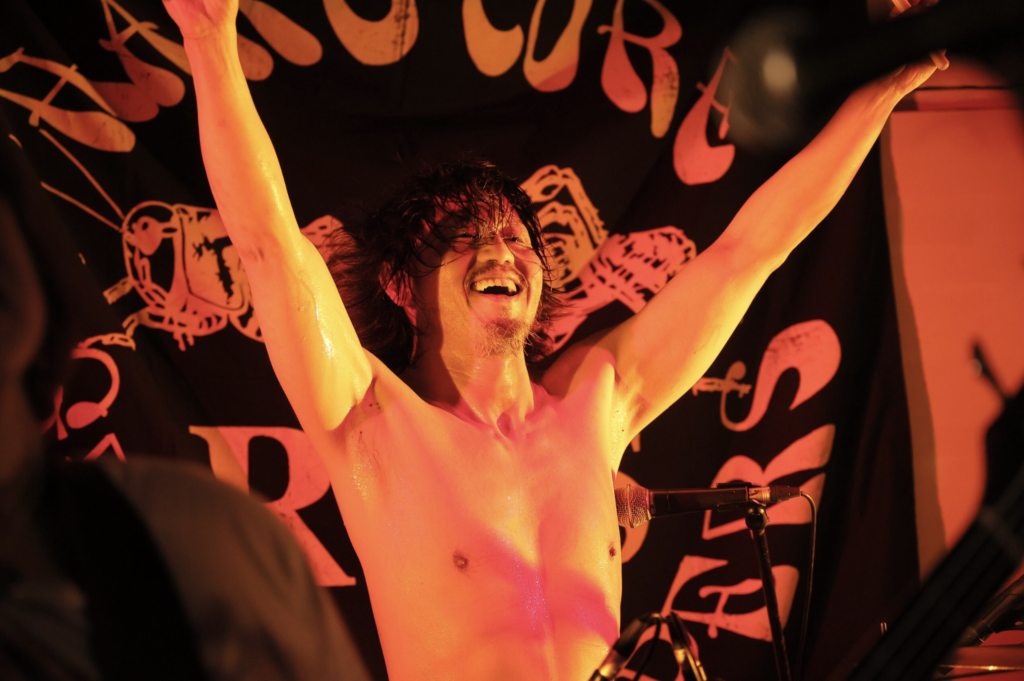
In the last few years the band have started to really speed up, releasing the ‘Green Riot’ 7”, the ‘City Baby Attacked By Buds’ LP and now the split LP with Boris. What caused this increase in activity?
TAKESHI SWEDEN: The reason may be that they do not want to repeat the environment and circumstances surrounding the time when they stopped their activities.
ROCKY: I just had a good imagination thanks to being rested.
MASAAKI ‘CAPTAIN’ SWEDEN: As mentioned above, Rocky’s writing pace is very fast. We wanted to record and create more and more work after years of being on the back burner.
How did the split LP with Boris happen? I know Takeshi is a big hardcore fan (e.g. he had Katsumi from Outo play on a recent record, and did a cool interview with Zigyaku from Gudon a little while back…) so have you known him for a while?
TAKESHI SWEDEN: I have known Boris since they first formed. At the same time, there was a cosplay band in Tokyo called Tacos UK , which was officially recognized by Chaos UK, and Atsuo and Takeshi were members of the band. Although the band did not play many gigs, I was a supporting member, so we were already in musical contact. Since the label for the new album was Relapse, we decided to release the split album with Relapse’s approval.
ROCKY: I met TAKESHI for the first time at R&S’s first studio.
Did the fact that you were appearing on a record with a popular heavy band change your approach at all?
TAKESHI SWEDEN: Nothing in particular. However, since the listeners of the bands are different from each other, this is a ‘greeting’ release.
While you’ve released music on US labels in the past (e.g. Bitter Lake, Partners In Crime) Relapse is obviously pretty different as it is a BIG heavy metal label. Was this weird for you as a punk band?
ROCKY: It’s interesting to put out a record on a label from a different field! I just wanted to release it with Boris.
TAKESHI SWEDEN: The main reason for releasing the album on Relapse is that it is easily available in any country in the world. The fact that Rennie [Jaffe], the president of the company, likes R&S also made it easy for us to talk with him.
MASAAKI ‘CAPTAIN’ SWEDEN: Yes, when we were younger, there might have been some hesitation and confusion, but we’re getting so old now, it’s not such a bad thing to try things while you’re still alive, is it? Besides, I love Zeke and Disfear!
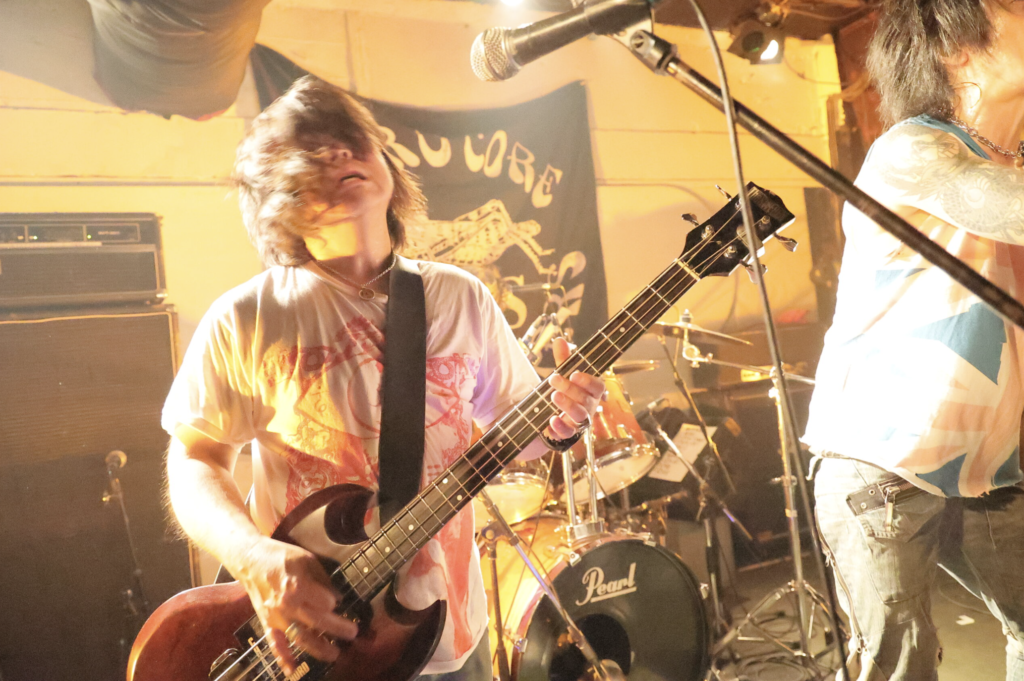
While the band still plays raging hardcore punk, it feels like there are more rock ‘n’ roll influences these days (e.g. ‘Up In Smoke’ has that cool classic rock riff). Was this a conscious decision for you guys, or just a reflection of where you are musically these days?
ROCKY: As for composing, inspiration only! I try not to forget the R&R elements, though. I’m in the groove of the moment.
MASAAKI ‘CAPTAIN’ SWEDEN: This is largely due to Rocky, who has contributed the most songs recently, but it goes without saying that I respect The Clash, The Damned and GBH as well as rock ‘n’ roll,.
TAKESHI SWEDEN: I think it is an accumulation of music and bands that each member has listened to from the past to the present. I have not only listened to punk, I also like 70s hard rock and psychedelic rock.
Weed has been a constant source of inspiration since the band’s earliest days. Why? What does it mean to you, and how does it help you write or play music?
ROCKY: Both composition and performance are made in weed. It’s essential to the enjoyment of sound.
Has your relationship with weed changed as you’ve gotten older?
MASAAKI ‘CAPTAIN’ SWEDEN: No, it continues to bring me lots of inspiration and many friends.
ROCKY: Nothing has changed and never will.
For a lot of people, it’s something more associated with slow music – perhaps stoner rock and doom bands like Sleep, Fu Manchu and Bongzilla. How does it inspire you to play so fast and crazy?
MASAAKI ‘CAPTAIN’ SWEDEN: A heart to ROLL? I’ve seen a lot of ROCK that doesn’t roll these days. Well, anyway, it’s normal to smoke and slow down, isn’t it? Ha ha!
ROCKY: It doesn’t matter if it’s high speed or slow. It’s a tool to get into the sound.
TAKESHI SWEDEN: It’s just happenstance, I guess. Still, the horsepower of Rocky on vocals after the re-activation has lifted the morale of the entire band.
I love the ‘City Baby…’ artwork. Can you tell us a bit about it?
MASAAKI ‘CAPTAIN’ SWEDEN: The cover was painted by Masato Okano, a New York-based artist! He is originally from the Shonan area near Yokohama, and I met him at a live house called El Puente in Nishi-Yokohama. That place is full of his murals!
The album title is obviously a nod to GBH and I know you’re big Motörhead fans, so I was wondering if you could tell us a bit about your relationship with UK punk?
ROCKY: UK punk is what got me into punk.It’s the cornerstone.
TAKESHI SWEDEN: Japanese and British hardcore was the music that inspired me to do my first band. But then I was influenced by the hardcore and punk scenes that were occurring simultaneously in many countries.
MASAAKI ‘CAPTAIN’ SWEDEN: When Sick On The Bus toured in Japan once, they couldn’t find a drummer, so I had to help them out on short notice and toured with them. When I went to London, I stayed at Biff’s house. Of course, I have played with Varukers many times in Japan, and also with Systematic Death. GBH and Discharge have played at the Pipe Cut Gig organised by Systema. Oh, Gabba (Chaos UK, F.U.K.) once came to stay at my house. I met ENT for the first time when we were playing with Bastard in the 80s. Doom and Wankys are all good friends of mine.
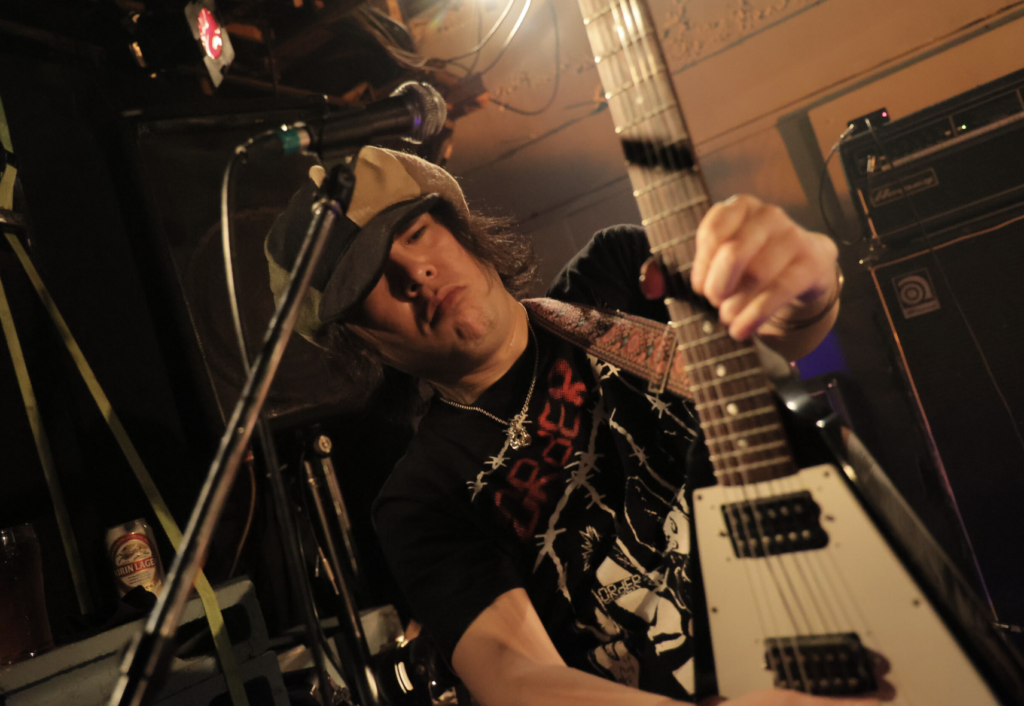
How has your approach to making music changed since records like ‘Hardcore Grasshoppers’ and ‘844’? What lessons have you learned along the way?
TAKESHI SWEDEN: The natural increase in the variety of tunes and the ability to arrange them.
ROCKY: I’m slowly getting more and more things I want to do. And it’s fun to have variety.
MASAAKI ‘CAPTAIN’ SWEDEN: When I was younger, I guess I annoyed the mixer by ordering him to do quite a few things. Now I let the mixer do most of the work. After all, better results are achieved when you leave it to a trusted expert rather than an amateur recording engineer. It took me years to realize this simple and obvious fact.
How has the Japanese hardcore scene changed in the years since the band first started?
MASAAKI ‘CAPTAIN’ SWEDEN: Although they are relatively well supported by a certain segment of the population, it is only the enthusiasts, and they are getting older. The lack of young, vibrant punx is the biggest concern and will be a theme for the future.
TAKESHI SWEDEN: I don’t know if you look at it in terms of a scene. However, as for the attitude of the band, nothing has changed since the band formed.
ROCKY: Hmm.I don’t think anything has changed. Times may have changed, but nothing has changed in the content.
What kind of crowds are you playing to these days? Is it young punks or older audiences who knew you from the 90s?
MASAAKI ‘CAPTAIN’ SWEDEN: Due to our age, we tend to attract an older crowd, but with the addition of younger members, I think the number of young people is increasing a little bit.
ROCKY: Some are old-timers, some are newcomers.
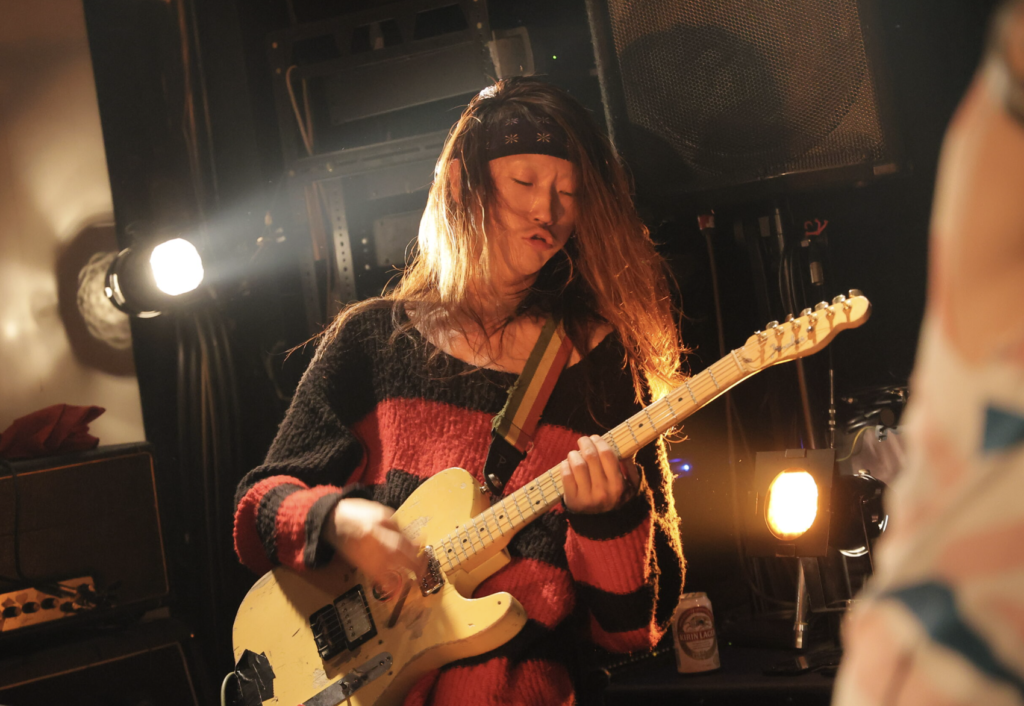
What’s next for the band? What plans do you have for the future?
TAKESHI SWEDEN: I want to create works that are considered masterpieces and enjoy working overseas.
MASAAKI ‘CAPTAIN’ SWEDEN: Next, of course, is the production of the fourth album. We have accumulated a lot of new songs, and I can’t wait to start working on it with the five of us!
Also, I would love to go on an international tour. Because of Corona, we have had to restructure our US tour plans, and as soon as we are ready, we hope to go soon!
https://rockyandthesweden.com/
